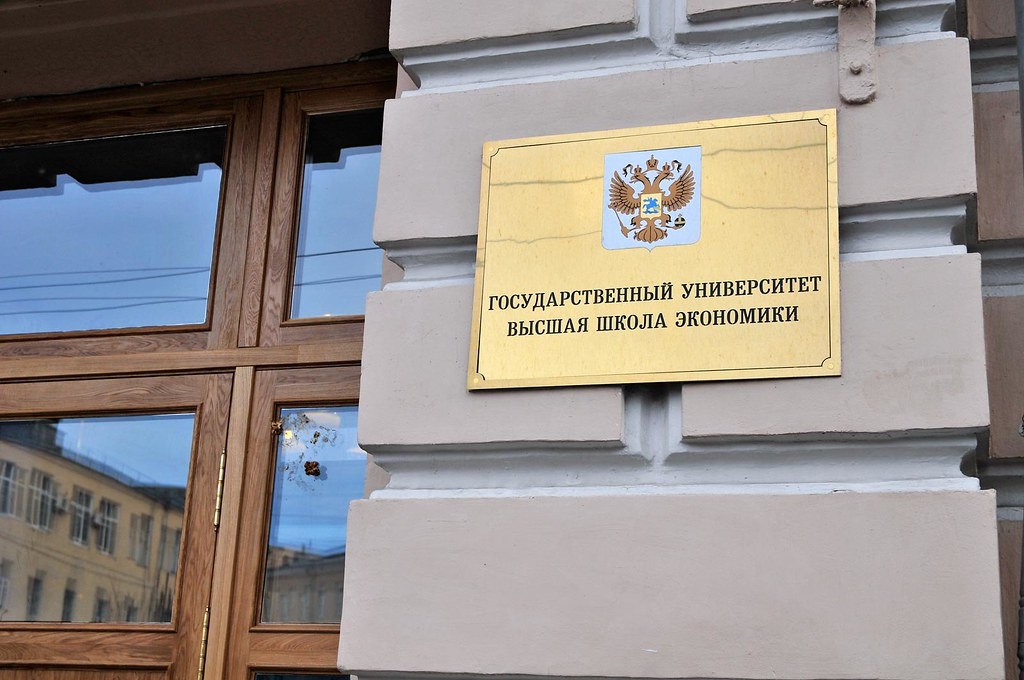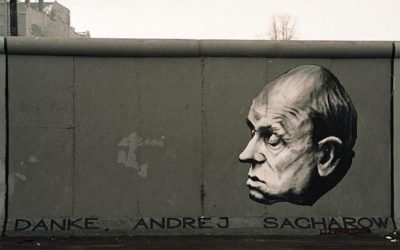In liberal democracies, economists, sociologists, and political scientists take part in discussions of issues that are significant to society. In Russia, meanwhile, social scientists provide less and less expertise.
Boris Grozovsky
Photo: The Higher School of Economics is one of the key think tanks for the Russian government. (Free photobank, CC BY-NC-SA 2.0, bit.ly/2UModMM)
Social Sciences and Politics
By definition, the social sciences, including economics, cannot exist in isolation from policy-making.
- The conclusions drawn by social scientists are used by policymakers.
- The programs and actions of politicians become the subject of social science research.
- Research papers help policymakers to conceptualize problems and become the basis for political decisions.
The social sciences are needed to solve both global and national problems. Social science expertise mediates between scientific knowledge and its application: it sets priorities, identifies problems, measures effects, interprets situations…
Social Sciences in Democracies and Authoritarian Regimes
In liberal democracies, social scientists are part of the political conversation.
Political parties and the government involve them in discussions of the most significant public issues. When developing policies, social scientists and experts act as either “advocates” or “brokers” of knowledge—they either insist on a close approach to solving problems or help citizens and politicians understand who benefits and who loses as a result of a particular decision.
In authoritarian regimes, the role of social expertise—and the social sciences in general—is curtailed. There is no political struggle there, and freedom of speech is limited.
However, authoritarian leaders need expertise too: academics and consultants help streamline decisions.
In democracies, researchers are recruited to
- study a problem that is supposed to be solved through policy;
- explore ways to solve it;
- choose the best solution to the problem (here, however, the responsibility lies not with researchers but with politicians); and
- track how the solution is being implemented and determine whether it needs to be adjusted.
In authoritarian regimes, meanwhile
- Phases 3-4 are implemented solely by officials (researchers and the public are excluded from participation); and
- Experts are involved very sporadically in phase 1 (and less often phase 2).
Here, it is the state that recruits researchers to provide expertise.
Due to a lack of political competition, parties are not interested in expertise.
The private sector has only a limited need for it due to the underdeveloped state of lobbying institutions.
NGOs are weak, lack financial resources, and have little involvement in policymaking, so their demand for expertise is also low.
Experts vs. Viziers
In contrast to the Stalinist period, researchers in modern Russia participate in expert examination voluntarily.
For their work for the state, researchers receive decent compensation—significantly higher than what is paid for research work and teaching at universities. In addition, servicing the state increases the administrative weight of universities: they are allocated more funds from the budget, it becomes easier to get new land plots and buildings, etc.
The key Russian universities that help develop policy in the field of the economy and the social sphere are the Higher School of Economics (NRU HSE) and the Russian Academy of National Economy and Public Administration (RANEPA). Their administrative weight is very high.
Researchers are forced to pay for this by declining to participate in real examinations. They are more often invited to:
- justify a decision already made (rather than help come up with it); or
- find a mechanism for achieving the goal (rather than help formulate the goal itself).
Having a stance of their own only makes an expert’s life more difficult. It is considered wrong if an expert both works for a government agency and criticizes its policies. Such an expert will be excluded from projects.
In general, as economists Konstantin Sonin (University of Chicago) and Georgy Egorov (Kellogg School of Management) showed back in the 2000s, dictators need not experts, but rather viziers—experts with greater loyalty.
For a vizier, competence is less valued than loyalty. He or she may have a mediocre level of competence, but his or her loyalty is beyond doubt.
Such experts are especially in demand by “information autocrats,” a term coined by Daniel Treisman (UCLA) and Sergei Guriev (Sciences Po). Their power rests not on “bayonets and Cossack whips,” but on the manipulation of information. Scientists help such autocrats to be seen in the eyes of the people as competent leaders who take the right decisions.
In the 1990s and 2000s, the best Russian economists—liberal-minded experts—performed various jobs for government agencies: they consulted, prepared expertise, and developed policies. They tried to be “technocrats” in power who did not concern themselves with politics but helped the government to take the right decisions.
This model results in expert knowledge working for the common good to a very weak degree. Politicians’ decisions are more influenced by the interests of the ruling elites and the apparatus than by researchers’ perspectives. Therefore, even local reforms have a very limited impact. As a result, researchers’ involvement fails to lead to an improvement in the quality of public administration.
Naturally, the targeted participation of researchers in improving the work of government agencies brings some results. But large projects—such as Strategy 2020, whose development drew hundreds of HSE and RANEPA scholars—are implemented only to the extent that it is beneficial for officials.
What Has Changed Since Crimea?
After 2014, the shaky consensus between the state and scientific experts was broken. Now, the state needs active loyalty.
In addition, the state has grown much more sensitive to criticism. Statements by scientists that would have gone almost unnoticed 10 years ago now provoke heated discussions in which politicians always participate. Sometimes, these statements even attract the attention of investigators.
Some of the most prominent Russian economists—Sergei Guriev, Konstantin Sonin, Sergei Aleksashenko, and others—now work abroad. Experts who collaborate with government agencies engage in self-censorship.
It is very difficult to predict what will be the next thing to annoy officials.
- Political scientist Kirill Rogov was forced to stop cooperating with RANEPA and the Yegor Gaidar Institute for Economic Policy after publishing his 2015 report for the European Council on Foreign Relations.
- Anthropologist Alexander Panchenko’s contract with St. Petersburg State University was not extended in 2018: the researcher believed the decision was rooted in his appearances in court as an expert witness in criminal cases against members of the Pentecostal sect.
- Opposition historian Andrei Zubov was fired from MGIMO in 2014 after penning an anti-war column in a newspaper.
- St. Petersburg historian Kirill Aleksandrov was stripped of his doctorate, which had previously been awarded for his dissertation on the Vlasov army.
There are plenty of similar cases in the regions. There, it is even easier to lose a job at a university: one individual was fired for screening an Anti-Corruption Foundation film about Dmitry Medvedev for students.
Such stories perform a “signaling” function: firing one person makes hundreds of others more cautious while giving university administrators and FSB representatives who “look after” universities a sense of what is considered unacceptable today.
Universities under Close Control
Russian universities are gradually turning into budgetary institutions. Rare exceptions to the rule are the small European University at St. Petersburg and Shaninka (Moscow Higher School of Social and Economic Sciences). The latter operates in a hybrid mode: it is autonomous, but at the same time dependent on RANEPA in various ways.
Attention to universities increased in 2017 as it became clear that the protest movement was getting “younger.” St. Petersburg University (SPbSU) became the testing ground for the new policy. Back in 2013—before Crimea—its employees were prohibited from giving comments and expert opinions without permission from the administration. It was not long before they began to fine students for participating in protest activity.
Quite often, it is not the “political statements” of researchers that cause irritation, but their expert analysis.
- At the end of 2017, the Development Center (NRU HSE) stopped publishing comments on banking regulation and supervision. At that time, private banks were collapsing one after another and the Central Bank’s policy toward them was very controversial.
- In the fall of 2019, RANEPA stopped publishing the monthly Monitoring of the Socio-Economic Situation and Well-Being of the Population, which had been published since 2014. It was prepared by the renowned economist Tatiana Maleva and other employees of the Institute for Social Analysis and Forecasting at RANEPA. Rumor has it that officials were annoyed when they read in the materials of the Presidential Academy that the economic wellbeing of the population was declining.
- Release of another economic monitoring is under threat: it keeps coming out, but its frequency has been reduced.
Crackdown on the Higher School of Economics
The Higher School of Economics has become the main platform for the struggle for university freedoms. The university tries to maintain an intermediate position:
- As much as possible, avoid dismissing faculty who are critical of the political regime,
- but “take action” if any employees or students irritate the authorities by their actions.
The situation at the university began to deteriorate in 2014, when Viatcheslav Volodin became Head of the HSE Supervisory Board (in 2016 he was replaced by Sergey Kiriyenko) and rector Yaroslav Kuzminov ran for the Moscow City Duma and became co-chairperson of the Moscow headquarters of the United Popular Front.
- In 2015, the Liberal Mission Foundation created by Yevgeny Yasin was recognized as a foreign agent.
- Sergey Aleksashenko and Vladislav Inozemtsev left HSE.
- Konstantin Sonin left the position of vice-rector and shortly afterward accepted a professorship at the University of Chicago.
In 2018, the Russian Transparency International (TI-R) cut ties with the HSE. As its head, Elena Panfilova, later explained, she was asked to disavow the investigations devoted to Marat Khusnullin, then a vice-mayor of Moscow who oversaw construction and transport. HSE had been supposed to receive new buildings and TI-R revealed a conflict of interest.
In 2019, Alexander Kynev, a leading specialist in Russian regional politics, resigned from the HSE and courses taught by the political scientist were removed from the curriculum. The Department of Political Science, with which he was affiliated, had been merged with the Department of Public Administration. To prepare political science students for “real life,” Alexey Chesnakov, who had worked a lot with the Presidential Administration and Vladislav Surkov, was invited to teach at the newly established unit.
In 2019, Elena Sirotkina also left the university: she specialized in studying participants in the protest movement, in particular supporters of Alexei Navalny.
After the protest rallies in the summer and fall of 2019, in which many students took part, student organizations stole the limelight. In December, Doxa magazine was excluded from the list of HSE student organizations: it had allegedly caused reputational damage to the university. Doxa criticized Valeria Kasamara’s run for the Moscow City Duma (she was not elected), started a crowdfunding campaign to pay fines on behalf of students against whom cases were opened, published problematic articles, and, on the basis of Dissernet materials, addressed the plagiarism issue.
In the fall of 2019, a scandal broke out around philologist Hasan Guseynov, who allegedly “insulted the Russian language and culture.” The Ethics Council recommended that he apologize and disavow the statements. Guseynov declined. Rector Yaroslav Kuzminov essentially endorsed the criticism of Guseynov’s remarks.
Finally, the Liberal Mission Foundation, which was founded by Yevgeny Yasin and had long had close ties with the HSE, was forced to gradually cut ties.
***
For social scientists, working conditions gradually deteriorated throughout the early 2010s, particularly after Crimea in 2014–15. A noticeable tightening occurred in 2019, especially after the August-September protests.
The tightening unfolded as follows:
- Responding to growing protests, the regime became even more authoritarian, placing increased pressure on the intellectual stratum, where protest intensity was the highest.
- After the disorganization and apathy caused by the increase in pressure, the protest then intensified over time.
- In response, the authorities became even tougher on those who expressed their disloyalty in public.
The mechanism works like a vicious circle. Recent political developments related to the amendments to the Constitution may lead to new protests among educated citizens. This, in turn, will result in new restrictions on researchers and students.
Boris Grozovsky is a columnist and organizer of public lectures and discussions at the Sakharov Center, the Yegor Gaidar Foundation, and the School of Civil Education. He is also the author of the Telegram channel EventsAndTexts.





0 Comments